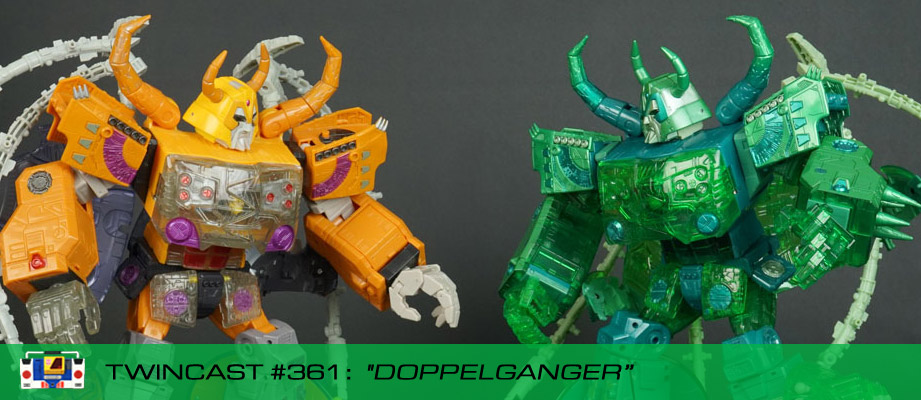Transformers and More @ The Seibertron Store

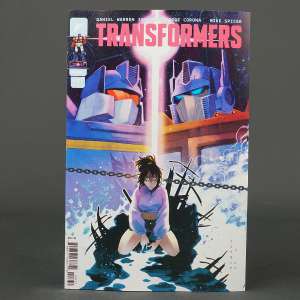












Sunstar wrote:This link was originally posted by Matt Moylan right here: http://mattmoylan.deviantart.com/journal/17817859/Matt Moylan wrote:Don't Worry about Orphaned Works
Journal Entry: Sat Apr 12, 2008, 7:59 PM
I've sen many journal posts by artists today about this orphaned works mini-panic by artists.
(Ahhh! we're going to lose all our rights! OH NOES!! etc) The first place I went after reading about it was boingboing.net .They're very on the ball about any threats to copyright protection.
They are directing everyone to this article, which explains clearly how there is currently no such legislation, and how the guy generally doesn't know what he's talking about:
[url="http://maradydd.livejournal.com/374886.html"]link[/url]
Good read, I think it will put many minds at ease.
Link to story: http://maradydd.livejournal.com/374886.htmlPrevious Entry | Next Entry
Six Misconceptions About Orphaned Works
Apr. 12th, 2008 at 9:52 AM
My friends list today has been swept by a storm of fear, uncertainty and doubt surrounding this article by Mark Simon on Animation World Network about the issue of orphaned works. "Orphaned works" are creations likely still under copyright -- photographs, illustrations, written works, music, &c. -- for which the original creator cannot be found, and thus their copyright status cannot be determined. Orphaned works present a thorny problem in today's litigious society, because when the question of "who owns X?" can't be answered, very few people are willing to do anything with X if they fear that they'll be sued for it.
For instance, suppose that you have your parents' wedding album, and the photos in it are starting to fade. You go to a photo shop to get the pictures scanned and digitally retouched, so that you can save them on DVD to show your kids in ten years. However, the copyright on those photos belongs to the photographer, not you or your parents. The photo shop tells you that unless you can get permission from the copyright holder, they can't do anything with the photos. Do you know who your parents' wedding photographer was? Do they remember? What if the company the photographer worked for has since gone out of business, and nobody can track down the individual person who took the photos? The pictures are "orphaned works", and no one knows who owns the rights on them.
Or what if you're cleaning out your great-aunt's attic, and you find a box full of pictures of your town as it was 100 years ago? The local history museum would love to add them to its collection -- but it can't, unless you, your great-aunt, or somebody can track down the original photographer and secure his or her permission (or the photographer's estate's permission, if the photographer's dead) to donate the photos. (Copyright in the United States lasts for life of the creator plus 75 (EDIT: 70, for works created today, older works are weird, see here for details; thanks for the correction, internets) years, so chances are, even 100-year-old photos are still under copyright. Thank Disney for that one, guys.)
But Mark Simon apparently believes that enacting legislation to handle orphaned works in a way that protects people who legitimately try to find the original copyright holder, but can't, will lead to the effective invalidation of copyright on ALL UNREGISTERED ART EVERYWHERE OMGZ CALL OUT THE CAVALRY. His article, which I linked above, is miserably poorly researched, jumps to completely illogical conclusions, and, most retardedly of all, implores artists to letterbomb Congress in protest of proposed legislation which does not actually exist. Someone please tell me where this guy is getting the crack he's smoking, because I want to avoid that streetcorner and everything in a six-block radius, kthx.
So, here are six misconceptions that are making the rounds about orphaned works, and a short explanation of why each one is a misinterpretation or just a flat-out lie. I also give links to useful supporting material, and resources you can use to keep track of this issue as it evolves.
1. "There's legislation before Congress right now that will enact major changes in US copyright law regarding orphaned works! We have to act immediately!"
Actually, no, there isn't. Even the Illustrators Partnership admits this, so I don't know where Mark Simon gets this idea. There may very well be a bill introduced this legislative session, but no such bill has surfaced yet. That gives you, artists and authors, time to get familiar with the actual legislative landscape, research what might be proposed in a bill, and decide for yourself what position to take.
Back on March 13, Marybeth Peters, the Register of Copyrights, made a statement before the House Subcommittee on Courts, the Internet, and Intellectual Property. It discusses orphaned works in detail, and mentions previously proposed legislation that expired when the 2006 House session closed. It was never voted on.
I advise everyone to read Ms. Peters' statement. It's long, but it's in plain English. (Okay, she does like to use big words. But it's not legalese.) If you read it, you'll see that the Copyright Office is in fact concerned about how to handle orphaned works in a way that's fair to original copyright holders. I especially recommend you read the section titled "The Proposed Solution". Read it carefully. It's pretty clear that Mark Simon didn't.
If you want to keep an eye out for upcoming legislation that might affect this issue, THOMAS is a great place to start. I'm also a big fan of GovTrack, which scrapes THOMAS and sorts bills into categories based on topic -- you can even get RSS feeds of bills related to the topics of your choice.
2. "If I want the copyright on my art to be recognised, I'll have to pay to register each piece!"
That isn't the case now, and it isn't likely to be the case even if an orphan works bill passes. In current copyright law, copyright protection exists "from the time the work is created in fixed form" -- in other words, the instant I hit "post" on the form I'm typing this blog post in, the instant you step away from the canvas, the instant you hit "save" in Photoshop, that work is "in fixed form" and protected by copyright. This applies to all literary, musical, dramatic, choreographic, pictorial, graphic, sculptural, video, audiovisual, and architectural works, as well as sound recordings.
The Copyright Office considered the idea of a registry, but shot it down (emphasis mine):
In our study of the orphan works problem, the Office reviewed various suggestions from the copyright community. These included creating a new exception in Title 17, creating a government-managed compulsory license, and instituting a ceiling on available damages. We rejected all of these proposals in part for the same reasons: we did not wish to unduly prejudice the legitimate rights of a copyright owner by depriving him of the ability to assert infringement or hinder his ability to collect an award that reflects the true value of his work.
In the same paragraph, Ms. Peters also noted that the Copyright Office finds it important for any new legislation to cover both published and unpublished works. Existing copyright law, as we saw above, covers all works from the moment of their creation.
It is already possible to register a copyright with the US Copyright Office. It is not required, but registering a copyright gives you a few advantages in the event that someone illegally copies your work. If your copyright is not registered, you may claim "actual damages and profits" -- i.e., the value of the work. (I think this also means that you can recover whatever profits the infringer made by using your work illegally, but I'm not sure about that, and I'm not a lawyer, so don't quote me on that one.) If your copyright is registered, you may also claim statutory damages (between $750 and $30,000 per work -- up to $150,000 per work if you can demonstrate that the infringment was willful, i.e., the infringer knew the work was copyrighted but used it anyway) and attorney's fees -- in other words, if you win the case, the infringer has to pay your lawyer for you. (Whee!)
But, again, there is nothing that indicates that registration will be required. Either Mark Simon read Marybeth Peters' statement wrong, or he made it up.
3. "If I don't pay to register my copyright, anyone in the entire world will be able to use it for free!"
Nope. There is nothing on the table that suggests that the US will be pulling out of the Berne Convention, which is the international treaty which governs copyright provisions between countries. Marybeth Peters certainly isn't suggesting it.
Now, Mark Simon seems to be flipping his **** over Ms. Peters' recommendation of
a framework whereby a legitimate orphan works owner who resurfaces may bring an action for “reasonable compensation” against a qualifying user. A user does not qualify for the benefits of orphan works legislation unless he first conducts a good faith, reasonably diligent (but unsuccessful) search for the copyright owner.
Perhaps he's envisioning a scenario where a user spends five minutes googling, comes up with nothing, calls that a "good faith" search and forges ahead with an infringing use. That's not going to fly before the court; the user will have to detail how he conducted the search, and if the copyright owner can demonstrate that no, actually, it is quite easy to find the work's original owner, the "good faith" provision doesn't apply. And even if the "good faith" provision does apply, the Copyright Office recommends that the user should still have to compensate the owner for a reasonable amount.
It's all there in writing, folks. This isn't that hard.
Now, the Copyright Office also proposes a "safe harbor" provision for very specific cases:
a safe-harbor for certain limited uses performed without any purpose of direct or indirect commercial advantage. The exception would apply only where the user ceased infringement expeditiously after receiving notice of a claim for infringement.
In other words, if someone infringes your work for nonprofit purposes and you pop up and say "um, no, that's mine," they must immediately take it down. Otherwise, the safe harbor provision does not apply, and they must compensate you for their use of the work. Furthermore, if they don't immediately take it down, they're also subject to the No Electronic Theft Act, which sets out the damages I described above and also establishes criminal penalties for copyright infringement, even when no money changes hands. Nobody is suggesting that the NET Act should go away either.
The basics are, well, pretty basic. An orphaned work is a work for which no legitimate rights-holder can be found. If the legitimate rights-holder resurfaces, it is not an orphaned work any more. Plain and simple.
4. "Someone else could register the copyright on my work, and use that against me!"
Nope. Under US copyright law, only the author of a work, a person or organization that has obtained ownership of all the rights under the copyright initially belonging to the author, the owner of exclusive rights (i.e., someone to whom you have transferred copyright under a "work for hire" agreement), or the duly authorized agent of one of the above may file for copyright registration.
Again, I'm not a lawyer, so I can't speak with any authority on what happens if somebody illegally registers a work for which they don't own the copyright. An illegally registered copyright will almost certainly have its registration revoked (freeing you up to register it yourself, if you so desire). The application form also states that "any person who knowingly makes a false representation of a material fact in the application for copyright registration .... shall be fined not more than $2500." Check out Title 17 of the United States Code, section 506(e) if you want to know more.
5. "If I don't track down people who are illegally using my copyrighted works, I'm SOL!"
Honestly? This is the state of things already. As I pointed out to karine, the Copyright Office does not employ an elite squad of cybercops searching night and day for infringing uses of copyrighted works. They don't have that kind of money. Identifying infringing uses, sending the infringer a takedown notice, and bringing legal action if the infringer refuses to stop infringing are already your problems. They will continue to be your problems for the foreseeable future.
I've also heard some FUD claiming that if someone infringes your copyright and you don't catch them within a certain period of time, you won't have any legal recourse. I have no idea where this misconception came from, but it's also wrong. The important thing to remember here is that copyright is not trademark. Trademarks can be lost if they're not enforced, but copyright is forever (ok, life plus 70). "Well, so-and-so infringed and you didn't sue them!" is not a legitimate defense. Neither is "I've been using this for the last N years and you never said anything!" If you catch someone infringing your copyright at any point in your life, or your estate catches them at any point up to 70 years after the date of your death, you do have legal protection.
6. "Displaying my artwork anywhere means that it automatically becomes orphaned, and anyone will be able to use it!"
This is quite possibly the most ludicrous claim that's being bandied about. According to the Copyright Office, public display of a work does not even constitute publication -- you have to sell copies, or tell other people they can distribute copies, in order for the work to be considered "published". (EDIT: what I tell you three times is true, I am not a lawyer. The Copyright Office's FAQ does not opine about content displayed on the Internet, but you're probably better off disallowing redistribution anyway if this is something you're concerned about.)
Furthermore, as we've discussed above, a work need not be registered with the Copyright Office, or with a private registrar, to be covered by copyright, so if someone infringes on your work and you send them a takedown notice, the work is not orphaned. Full stop. I cannot repeat this enough times.
Copyright is automatic and does not change unless you transfer your copyright to someone else, die (in which case it's automatically transferred to your estate), or commit the work to the public domain. "Orphanedness" is a state which gets removed when the copyright holder speaks up. Even placing a work under a distribution license, such as a Creative Commons license, doesn't change the fact that you own the copyright.
Also, for those of you considering formal registration with the Copyright Office to have the option of statutory damages, here's a neat loophole you can use. Unpublished works can be registered as a collection, as many works in the collection as you want, in a single filing, for one filing fee of $35. Since merely putting your artwork up for display on the Interwebs doesn't constitute "publication", you could register "All My Artwork From The Last Ten Years" as an unpublished collection for a whole $35, and sue the pants off anyone who infringes anything in that collection. (This would also be a fun way to test whether the Copyright Office considers works displayed on the net to be unpublished. If you try this out, do let me know!)
---
I hope this addresses any fears you might have about orphaned works and the sort of legislation that might come up regarding them. If you have any questions, please feel free to comment and I'll do my best to answer them. Likewise, please feel free to link this article or reproduce it in full or in part; I am placing it under the Creative Commons Attribution-Noncommercial-ShareAlike 3.0 United States license.
kynn also has some cogent observations about orphaned works, Mark Simon, his sources, and some follow-the-money fun here.
So don't worry folks.

Jeep! wrote:Why do I imagine Dead Metal sounding exactly like Arnie?
Intah-wib-buls?
Blurrz wrote:10/10
Leave it to Dead Metal to have the word 'Pronz' in his signature.
Justicity wrote:So does this affect UK artists???

Jeep! wrote:Why do I imagine Dead Metal sounding exactly like Arnie?
Intah-wib-buls?
Blurrz wrote:10/10
Leave it to Dead Metal to have the word 'Pronz' in his signature.
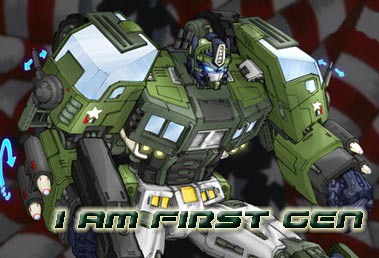

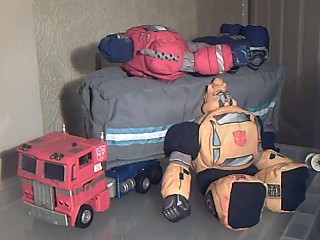
First Gen wrote:This is something that absolutely cannot be allowed to happen. Youtube videos, Deviant Art, Fan fiction, the list goes on of what can be stolen from us. Major businesses stand to make millions off of OUR creativity. This must be stopped, no matter the cost!!!!

That means writing letters to our congressmen and representatives. That means voicing your opinion about how we need copyright protection, as we've had since 1976, that protects everything we create from the moment we create it. This is the case around the world.
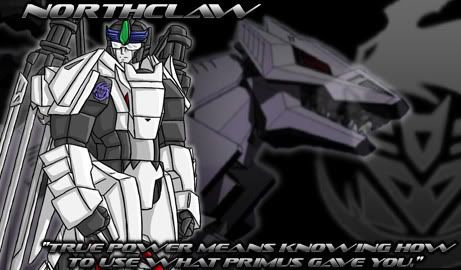
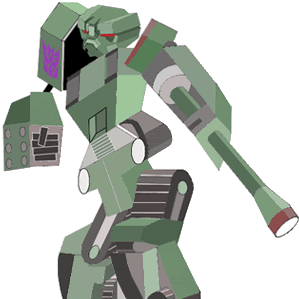
NEWS FROM THE LIBRARY OF CONGRESS, 2007 wrote:Orphan Works Legislation
In 2005, the Copyright Office conducted a study on the “orphan works” issue. The study was a response to concerns that uncertainty surrounding ownership of orphan works might needlessly discourage subsequent creators and users from using works in socially productive ways, such as by incorporating these works in new creative efforts, or by making them available to the public. The study involved written public comments (over 850 were received), four days of public roundtable discussions (two in Washington, D.C. and two in Berkeley, Calif.), and 17 informal meetings with interested parties to discuss issues in greater depth.
The Copyright Office then submitted its “Report on Orphan Works” to Congress in January of 2006. The Office’s conclusions were as follows: 1) The orphan works problem is real. 2) The orphan works problem is elusive to quantify and describe comprehensively. 3) Some orphan works situations may be addressed by existing copyright law, but many are not. 4) Legislation is necessary to provide a meaningful solution to the orphan works problem as we know it today.
Top of Copyright
The Office recommended that the orphan works issue be addressed by an amendment to the Copyright Act’s remedies section. This amendment would limit the liability of a user of a copyrighted work who performed a good faith, “reasonably diligent search” for the copyright owner but could not find that person, and provided attribution to the author and copyright owner if known, and in a manner reasonable under the circumstances.
The House and Senate Judiciary Committees held hearings on the Report in March 2006 and April 2006, respectively. The Office’s testimony is available at http://www.copyright.gov/docs/regstat030806.html and http://judiciary.senate.gov/print_testi ... it_id=5219. The Orphan Works Act of 2006, H.R. 5439, was introduced in the House of Representatives on May 22, 2006. In large part this bill follows the recommendation of the Copyright Office. The bill was reported out of the House Subcommittee on May 24, 2006 and is available at http://thomas.loc.gov/cgi-bin/query/z?c109:H.R.5439:. The version voted out of the Subcommittee modified the Copyright Office’s initial recommendation to some extent, mostly to address concerns raised by photographers and other visual artists. The Copyright Office supported these amendments, and sees them as improvements. For example, the version reported out of the Subcommittee would: define “reasonably diligent search” to exclude situations where little or no search is performed simply because a copyright notice or other information identifying the author or owner does not appear on the face of a work; direct the Copyright Office to maintain information on its Web site about best practices and industry guidelines for conducting a “reasonably diligent search”; allow a resurfacing copyright owner to recover court costs and attorney’s fees in the case of “bad faith” negotiations by the user; and direct the Copyright Office to conduct a study on “small claims” in copyright infringement cases.
Following the House Subcommittee’s vote, the Orphan Works Act was combined with the Section 115 Reform Act of 2006 (“S1RA”), H.R. 5553, and the two became the Copyright Modernization Act of 2006, H.R. 6052. The full House Judiciary Committee took no action on the Copyright Modernization Act, but the Copyright Office suspects that work on orphan works legislation will resume during in the 110th Congress.


I've sen many journal posts by artists today about this orphaned works mini-panic by artists.
(Ahhh! we're going to lose all our rights! OH NOES!! etc) The first place I went after reading about it was boingboing.net .They're very on the ball about any threats to copyright protection.
They are directing everyone to this article, which explains clearly how there is currently no such legislation, and how the guy generally doesn't know what he's talking about:
http://maradydd.livejournal.com/374886.html
Good read, I think it will put many minds at ease.
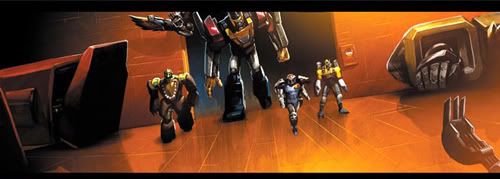
munkimus prime wrote:That was the greatest thing I've seen since boobs.
Registered users: -Soundwave-, Bing [Bot], Bumblevivisector, Dino-Snarl, Google [Bot], Google Adsense [Bot], Majestic-12 [Bot], Roadbuster, UltOrange, Zordon














